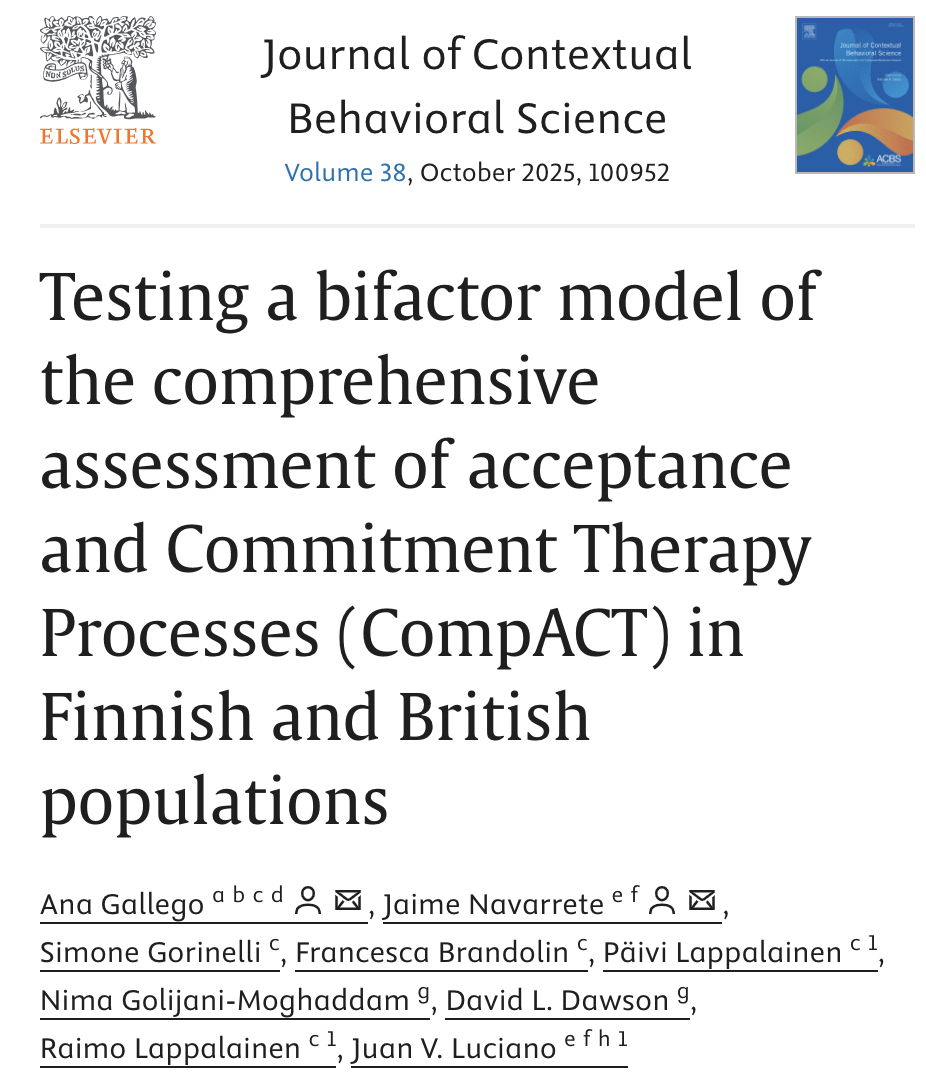Journal of Contextual Behavioral Science (JCBS)
Volume 38, October 2025
Authors
Ana Gallego, Jaime Navarrete, Simone Gorinelli, Francesca Brandolin, Päivi Lappalainen, Nima Golijani-Moghaddam, David L. Dawson, Raimo Lappalainen, & Juan V. Luciano
Key Findings
- A bifactor model best explained the CompACT structure.
- The Finnish version of the CompACT was validated for the first time.
- The Finnish CompACT demonstrated strong reliability and construct validity.
- The measure was sensitive to change following ACT-based interventions.
- Findings support the CompACT as a robust tool for assessing psychological flexibility.
Abstract
Introduction
Psychological flexibility is a core concept in Acceptance and Commitment Therapy, with several self-report instruments developed to measure it. One multidimensional measure is the Comprehensive Assessment of Acceptance and Commitment Therapy Processes (CompACT). This study is the first to test a bifactor structure of the CompACT providing new insights into its dimensional structure and how scores should be computed. Additionally, the study validates the Finnish version of the instrument.
Methods
Data from five distinct non-clinical Finnish (n = 281) and British samples (n = 690) were obtained. The internal structure of the CompACT was examined through confirmatory factor analysis. For the Finnish samples, reliability, construct validity, and sensitivity to change were also performed.
Results
The bifactor structure was the best-fitting model across Finnish and British samples, supporting both a general psychological flexibility factor and three specific subcomponents: openness to experience, behavioral awareness, and valued action. The Finnish version of the CompACT demonstrated good internal consistency, strong construct validity, and significant correlations with mindfulness, well-being, stress, and depression measures. Additionally, the measure was sensitive to change in psychological flexibility following ACT-based interventions, with moderate-to-large effect sizes.
Discussion
This study represents a significant advancement in the psychometric evaluation of the CompACT, providing the first empirical evidence that a bifactor model offers the optimal structural representation of the measure. The bifactor structure supports, for the first time, the computation of both an overarching psychological flexibility score and subscale scores in the CompACT, reinforcing the theoretical conceptualization of psychological flexibility. These findings contribute to the refinement of psychological flexibility measurement and offer valuable insights for both research and clinical applications. Future studies should further investigate the bifactor model's added value over other established measures of psychological flexibility.
